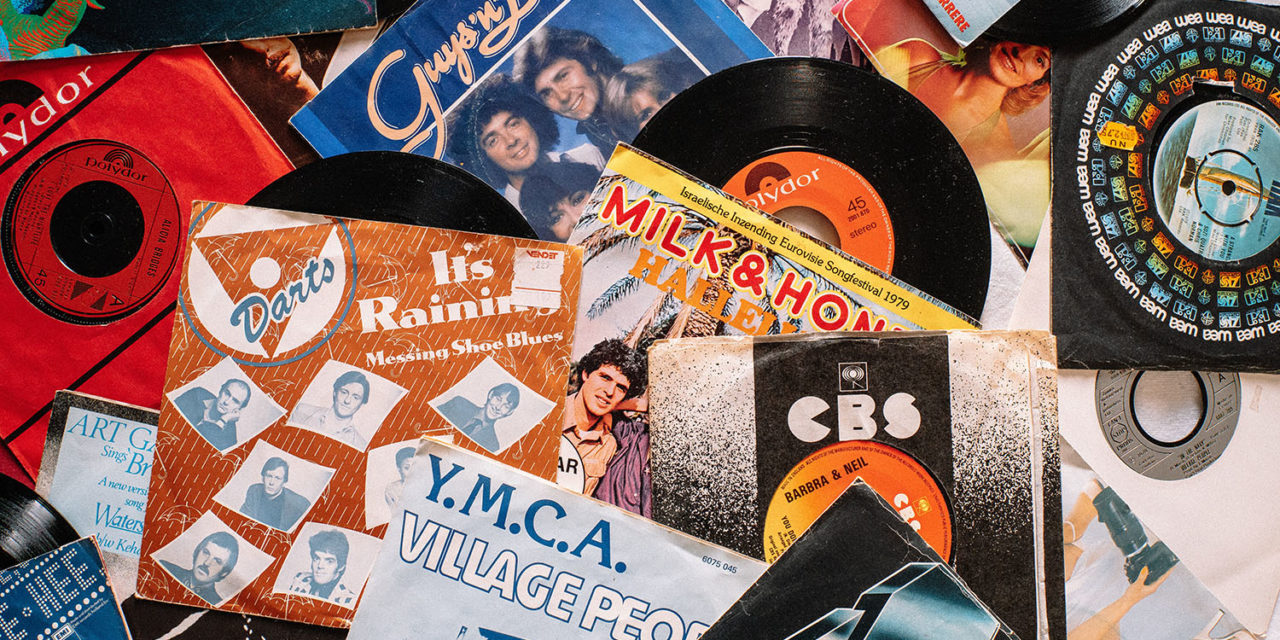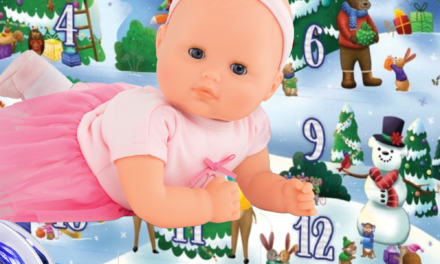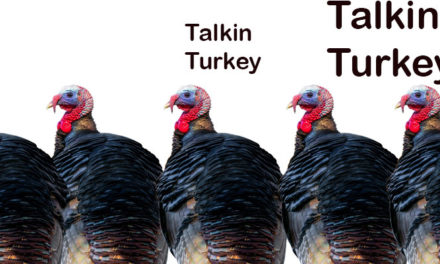By Marty Lamers
A mint condition Mickey Mantle rookie card. An early-60s, matched set of Craftsman hand tools. A Beatles “butcher cover” in an unpeeled state. An early Levi’s Jeans jacket with a fur collar. An outdoor metal sign advertising a local tobacco product. A fully seasoned set of cast iron cooking pans.
There are many different things that people might come to collect. Books, toys, tools, furniture, clothes, comics, records…even the most simple, everyday items from one generation can become the highly valued keepsakes of another. As a result, reselling “found”, or collectible items naturally happens in every generation.
However, in many regards the internet now makes collecting things much easier. You can look up items in seconds and can click to reach interested buyers all over the globe with your offers. Seen objectively, buying and selling collectible items has simply never been as popular as it is today.
The COVID crisis had lots of people rooting through their own buried treasures to pass time, and many found ways to cash-in on what they found stored in basements or tucked up in attics.
I personally leaned harder on my own hobby of buying and selling vintage vinyl records and was able to earn steadily from it while on lockdown for COVID. While I am not yet interested in approaching my collectibles as a full-time job, I have learned a few things about buying and selling collectible items.
My Own Experience
I truly love vinyl records; I have sold them now to collectors in many countries worldwide. I started with a decently large collection of my own that I built up slowly, since I was a kid. I worked in a record store for 6 years back in the 80s and would buy dozens of records at a time. I was a collector for decades.
I started reselling them actively 4 years ago when I acquired my uncle’s very large collection to add to my own…until then, I was always only buying them. More of a record hoarder than a reseller!
I have auctioned stuff sometimes, have a website of my own, and also have constantly updated listings in a couple of online stores that specifically cater to record/music collectors. Since becoming more serious about reselling I tend to keep about 350-400 items catalogued and listed for sale, always.
I have sold records from $10-$1300 in value, but most are about $20-50. I average about $450-1000 in transactions every month depending on what I have to sell, and I buy new collections when I can find them. I run ads online to buy record collections, and also look at estate/yard sales and similar avenues. I find new ones to consider about three times a month.
I think of selling records as a part-time job, and I track expenses religiously and approach it methodically. I break even on expenses, and typically make a little bit in my speculating. I do it a few days every week for sure, but also put in a lot of unpaid time listening to, cleaning, listing and researching vinyl records.
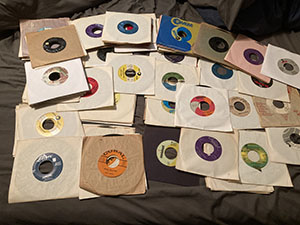 As a result of my time in the game, I am now aware of which site to use for different types of records – which records will likely do better in auctions, and which ones should be in a store-type of listing. I know shipping costs to most countries, and how to safely pack and ship a variety of record combinations.
As a result of my time in the game, I am now aware of which site to use for different types of records – which records will likely do better in auctions, and which ones should be in a store-type of listing. I know shipping costs to most countries, and how to safely pack and ship a variety of record combinations.
I have had to dedicate half a room in my house to hold the various shipping materials I need. I have already spent hundreds of dollars on boxes, tape, and record covers/sleeves, and must occasionally re-up, like a warehouse or store would do. I know where to get all kinds of packing materials online, fast, and I have established accounts in the best ones.
Note that if you are simply clearing out some basement or attic treasures, you will NOT need to go this far: everything you need to pack a box (of anything) can be picked up at the post office, a UPS store, or even many U-Haul locations. I invested in bulk packing materials because I send out records every week, and it is cheaper in the long run to have it all here.
I also have many boxes of records that are listed for sale somewhere, segregated out from my own collection. They are stacked safely and carefully in my home office, so when someone buys something, I can find it quickly. But it all takes up a bunch of space and time, for sure. It’s a commitment to do it at my level, but it fits my lifestyle well.
I research auctions and past sales histories to understand what value the records hold. I have met collectors from all over the world and had great experiences buying and selling vinyl.
In short, by approaching my vinyl hobby and reselling records more like a job, I have learned most of the ins-and-outs of reselling collectibles online. While most people won’t approach reselling collectibles quite as energetically as I have, a lot of the basics will surely stay the same.
Take Advantage of the Web
The internet is a perfect place for both hardcore and beginning collectors to build up their dream collections. It is also a giant, wide open marketplace for everyday people to sell off a diverse variety of collectible items. You can easily research and better understand the value of each piece, as well as finding the places where interested buyers are eagerly waiting for new listings.
The ability to research, locate and purchase specific items online has made the value of some rather obscure things skyrocket. Tales of digging in a basement or attic and discovering a highly valued baseball card, comic book, painting or toy are not unusual. My most valuable record found so far was an obscure mid-60s soul 45 from Detroit worth over $1300, which was sold via eBay auction to a DJ in Belgium.
However, not everything collected has sustained value, and some items are definitely going to fetch a higher return when offered to the right buyer in the right place. While your Auntie’s old, hand-painted tea set may be beautiful and delicate, the chances are it won’t find a willing buyer today – people who appreciate that kind of thing as a collectible are likely getting rid of their items now, not accumulating more of them.
A hard lesson to learn sometimes, is that even if you love something and find it truly beautiful, it may not be valuable to the collectors who are willing to pay.
Find the True Value
A lot of your ability to earn well from reselling collectibles is simply timing. You need to have a desirable thing for sale when the market is asking for it, and you need to connect to a willing buyer.
 From personal experience with my vinyl records, the resale value of an early Elvis record packed a LOT more punch in 1985 that it does today. Why? Because his most rabid fans were of prime buying age back then and were willing to spend heavily on their idol.
From personal experience with my vinyl records, the resale value of an early Elvis record packed a LOT more punch in 1985 that it does today. Why? Because his most rabid fans were of prime buying age back then and were willing to spend heavily on their idol.
But as time passed, the buying activity for collectible records was funded by different tastes and new buyers. So now, a late-80s heavy metal record or maybe some new wave or 90s grunge packs more resale punch than most rockabilly records do – even those recorded by the KING! Times changed, as did the tastes of the buying public. Elvis can still sell of course: but not anywhere near like he did in 1985, and definitely not fetching the same price tags.
Speculating on the extended value of collectibles over time is tough. Yet I can think of many types of patterned dishes, hand tools, clothing and other seemingly common items that achieved improved status over time. So if you love something (for whatever reason) and have treated it well, storing it for a future generation can definitely become a smart move over time. Nostalgia is not always picky!
Auctions VS Inventory Listings
Keep in mind the difference between an auction and a stock/inventory listing. Auctions can be exciting and help you drive up the final price of a highly desired collectible…but they can also backfire and net you just a small fraction of what the item is truly worth. It is a gamble you must evaluate every time you consider running an auction. The good news is you do have options.
Many sites now (eBay, Etsy, Discogs, etc.) allow users to list inventory items as they would in any online store. You can create storefronts in these popular sites with unlimited items for sale, which is often a smart and simple way to find interested buyers for multiple items. Most will charge you a small fee and a percentage of your sale, but it does vary so be sure you know.
Because I am reselling in the manner I do (over time, and from multiple collections I acquire rather than once from just my own stuff), I can loosely factor time into the value equation. I can wait longer for interested buyers to meet my set prices, so I list records in online stores for the amounts I want, and I can wait for the right buyer to find it. An auction site usually sells things faster, but you may not get what your item is worth. Same could be said for selling your items to a reseller or secondhand store. You will certainly get your money faster, but it will be a fraction of what you could make if you can wait.
I have not run an auction in a while because I didn’t like the percentage of the sale I had to pay, and I like more control over my costs. However, if I had a record that had global appeal and scarcity, I would use the auction format to drive up the price and get excited buyers to bid against each other. I might also use auctions to clear space in my office which is an occasional concern.
The universe of collectibles continues to grow and diversify, so narrowing your offers to specific sites catering to unique audiences can be an equally strong sales tool. Personally, I moved from auctions catering to the general public to listings on sites specific to vintage vinyl collectors. It has allowed me to ask the prices I want (I can still negotiate offers of course), pay less per transaction, establish a presence in an active community that I care about, and more.
Looking at Your Own Stuff
So how do you know if the items you have are truly worth anything? While it may vary a bit by the specific item you are looking to sell, in general, these things will hold true for most collectibles:
- Condition ALWAYS matters. The closer to new your item is, the more you can expect from selling it – think of toys still in their boxes, and well-kept, like-new furniture. Get great, multi-angle pictures of your things for sale: you will always need them. Most phones take fine pictures for this purpose – but do be aware of lighting, and staging your item to show it off at its best.
- You will want to know the basic value and market demand for your item(s) – everything is definitely not going to be equal in the world of collectors: Toughskins are not equal to Levis, and the Rolling Stones are not equal to the Village People. Find brand performance over time when possible – like the fact Barbies or Spiderman comics continue to rise in value. Look at auction histories and past sales data – sites that sell collectibles or hold auctions will have sales histories to research. Some brands are simply iconic, and always deserve attention…when in doubt, search it out online.
- You will want to know where and how to reach all potentially interested buyers. Consider more specific sites for popular collectible items (like stamps, records, clothing, etc.). Learn how much each site will take of your sale, how they handle shipping and state taxes, and other specifics that affect the details of your offer.
- You will want to decide if you will offer it only locally or to a wider audience. Research postage and take into account the costs of packing materials and handling – factor it into the cost of your item so you do not eat it. Decide if you will need multiple boxes and packing materials, or only need them once. Online options like Uline and Bags Unlimited can simplify your shipping and packing needs, delivering warehouse quantities to your door.
- You will decide how and which kinds of payments you will accept. PayPal, Zelle and other online options make accepting worldwide payments safe and simple. Some sites have their own payment gateways. Typically, you will connect a bank account to your established account in a vendor’s site and accept deposits via the vendor’s preferred method. It sounds scary, but it is really easy these days – you simply pay a small percentage of the transaction, and the money can come in from anywhere.
Selling your collectibles can be a fun and rewarding experience for sure. You can often get much more than you’d think for some of your old and unused items – and sometimes, like me, you can fall in love with them all over again as you sell them off to the next generation of eager collectors!
While some of the following websites might be familiar, when reselling collectibles it will help you to understand how each site operates, and what it can mean to you.
eBay.com – can be used as auction site, or as a storefront with inventory listings. Ebay has a tremendous reach and high visibility – people all over the world will see your items for sale. However, be aware of the fees and payment options here – personally, I found the fees were not worth it, and found smarter ways to sell my vintage vinyl to earn more from each sale. But eBay is a household name globally, so you are paying to put your item(s) in front of this buying audience, which can be a brilliant move.
Etsy.com – specializes in vintage items and handcrafts for one-off sales and inventory-type listings. There are a million different things you can sell on Etsy, and its users are dedicated shoppers and always growing in number. I do find that Etsy has some established norms that may or may not fit with my own sales strategies – but it is a great place for me to sell beat-up records to people who want them for crafts, or to sell bulk records that are not as valuable, individually.
Craig’s List – both paid and free listings, locally-based. Can run ads in any local edition, so you can write your ad once, then go from city to city in Craig’s List and repost it. Some ads have a small fee, some are free so be sure you know which one you are using…the fees here are very small compared to most. Craig’s List is a great place to find more collectibles to buy – my ad about buying people’s record collections has paid off handsomely, and I simply have to renew it (for free) every month or so.
Uline.com – packing materials shipped in 24 hours. Great for all kinds of different boxes, packing filler and more. They deliver immediately and have a huge variety of things that may help you make your hobby run more smoothly as a business.
Bags Unlimited – packing materials, specifically sized and collectible-specific storage options. If you find a baseball card and need a plastic case to protect it, this is a great site to find it. I find LP and 45 sleeves here, as well as other items specific to record collecting.
https://www.facebook.com/marketplace/learn-more While you are no doubt familiar with Facebook as a social media site, its marketplace allows you to reach a huge, interested buying market without spending a ton on doing it. I have seen people leverage FB smartly to sell all kinds of collectibles, and I have found things to buy there from time to time. Definitely worth checking out!
https://sell.amazon.com/programs/ Amazon is a HUGE marketplace where you can buy and sell most anything. As with eBay, the fees here may make it less strategic than other options for selling your items, but the reach and visibility of Amazon cannot be denied.
The following sites are examples of those catering to more specific collectible items. No matter what you are trying to sell, it is worth trying to find a site like one of these to put your collectible in front of the people who will love it most:
Poshmark.com for fashion, home décor, beauty products
Delcampe.net for postage stamps
Discogs.com for music collectibles (vintage and new vinyl, CDs, cassettes).
Sideshow.com for figurines, movie memorabilia
Wolfgangs.com for posters, tshirts, photos and more
Seven Hidden Gems
Niche obsessions that were once siloed, solitary practices can now find legions of fans and like-minded souls in websites, social media groups, and chatrooms about specific collectibles. While any kind of collectible might have some value to a buyer out there, the following items have been proven to be excellent finds for those who are digging in 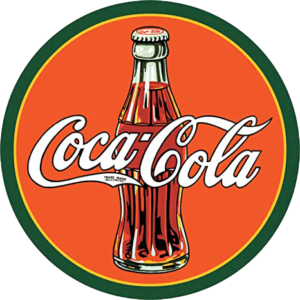 their attics, basements and garages:
their attics, basements and garages:
- Trading cards – baseball, movie, Pokeman…there might be many kinds of trading cards to find.
- Barbie dolls – the original ones might be worth a fortune, in good condition.
- Action figures/GI Joes – many movie figurines are out there, as well as others including the iconic G.I. Joe in his many incarnations.
- Tools – vintage hand tools and working power tools can find eager buyers in any location.
- Vinyl records – a resurgence in vintage vinyl makes those old albums worth selling for sure.
- Clothing – vintage clothing in great shape always has a solid resale/thrift store value.
- Coca-Cola items – this brand has devotees ready to buy-up most anything you got…the older, the better!

